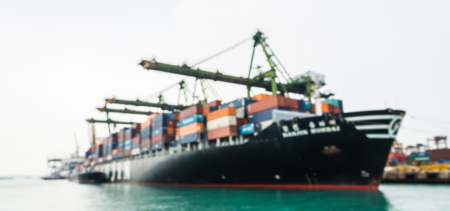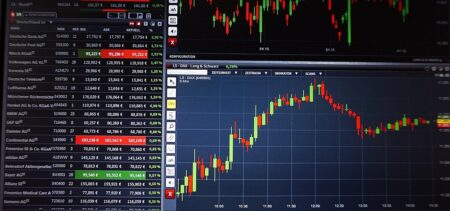While Western countries are growing more concerned about Russia’s invasion of Ukraine, the global economy is also suffering. More than two weeks have already passed since the conflict started, and economic warfare against Russia’s President Vladimir Putin seems to have negative effects not only on everyday Russians struggling to make ends meet but also on the daily lives of people in Europe and the US. After living in a globally connected economy for many years, Russians are now struggling to overcome some of the most difficult economic sanctions in modern history, while Europeans and Americans are discussing stepping up the economic heat even more.
Not only is the European Union (EU) vulnerable without Russian energy supplies, but ending business with Russian companies proves to be a difficult task for companies working on both sides of the Atlantic Ocean. While the value of Russia’s currency, the Ruble, has recently dropped to a record low, there is no clear sign that Vladimir Putin is ready to negotiate with his Ukrainian counterpart, Volodymyr Zelensky. As the military conflict intensifies, so are the pressures on the global economy — now deprived of most business with Russia. Let’s see what are the most important effects that Americans should know.
Why imposing sanctions on Russia matters
During his State of the Union Address, President Joe Biden emphasized the fact that Russia’s President Vladimir Putin tried to disturb the foundations of the free world by taking menacing actions against Ukraine. According to President Biden, Putin miscalculated by thinking he could invade Ukraine with the rest of the world watching. “Instead he met a wall of strength he never imagined,” President Biden said, before announcing even more sanctions on Russia. “We are cutting off Russia’s largest banks from the international financial system. Preventing Russia’s central bank from defending the Russian Ruble, making Putin’s $630 Billion ‘war fund’ worthless. We are choking off Russia’s access to technology that will sap its economic strength and weaken its military for years to come,” Biden declared.
With the American President saying US forces are not directly involved and will not fight Russian forces in Ukraine, economic sanctions are the best way of helping Ukraine resist the Russian invasion. “Together with our allies, we are providing support to the Ukrainians in their fight for freedom. Military assistance. Economic assistance. Humanitarian assistance,” Biden promised.
Can the sanctions imposed on Russia backfire?
Until 2014, when Russia decided to annex Crimea, its economy was interconnected on a global level. Some sanctions have been applied after this initial conflict, while most were applied following the recent invasion. The US, the EU, the United Kingdom (UK), and Canada barred multiple Russian banks from SWIFT, the world’s leading financial messaging system. Germany stopped certification of the Nord Stream 2 gas pipeline designed to bring natural gas from Russia directly to the Central European country. More than 300 companies, including many of the world’s best-known brands — from Coca-Cola to Disney and Starbucks — have decided to exit the country that rapidly turned into a global outcast.
However, while the list of sanctions is not only impressive, but also sure to provoke inflation in Russia, and leave many people in the country with no job and income, it is conceivable that it might backfire on the very countries that designed it. “A Russian dictator, invading a foreign country, has cost around the world,” President Biden said, before announcing he will do his best to protect American businesses and consumers from the negative effects of the conflict.
Protecting businesses around the world
Following his State of the Union Address and the expansion of the conflict, President Joe Biden looked for help in shutting off Russia’s oil revenues. Although the US only imports from Russia a small part of the oil this country actually sells worldwide — an average of 209,000 barrels per day (BPD) of crude oil and 500,000 BPD of other petroleum products in 2021, other Western countries are much more dependent on Russian energy and their economies are also closely connected to that of the US. Officials from Germany, the UK, and the Netherlands even went as far as to admit that Europe is now too dependent on Russian energy to stop imports in an attempt to increase sanctions on Russia. “You can’t simply close down the use of oil and gas overnight, even from Russia,” said British Prime Minister Boris Johnson.
Western leaders seem to be concerned that stopping oil and gas imports from Russia could affect their economies, which are already weakened by the COVID-19 pandemic, and ultimately fuel a global economic crisis with devastating consequences for American and European businesses and consumers. However, while Russia predicts that oil price will hit $300 per barrel if the West goes on to ban imports, prices have already dropped after discussions between the US, the United Arab Emirates (UAE), and OPEC.
Vladimir Putin’s Russia is not only a country known for starting military conflicts, it is also one known for using panic to gain momentum within a conflict, including an economic conflict. That is why the global impact of sanctions on Russia, while existing, will probably prove to be much smaller than the Russian President would like the world to think it is.













































